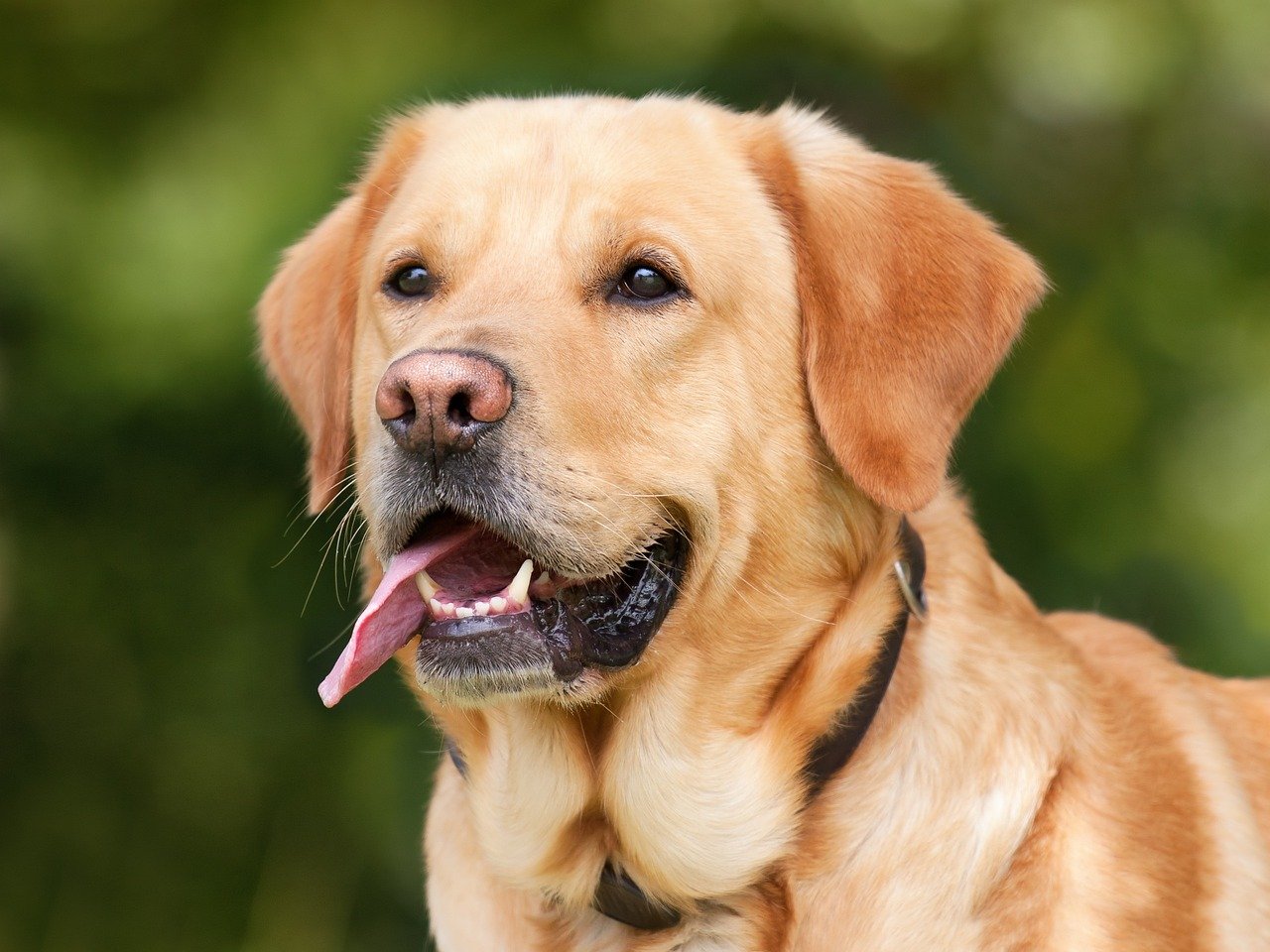Have you ever looked at your dog and wondered if their dinner is truly what they need? It might sound surprising, but not all dogs thrive on the same diet. Just like people, dogs come in all shapes and sizes, and their nutritional needs can be as unique as their personalities. Imagine feeding a tiny Chihuahua the same meal as a giant Great Dane—sounds wild, right? Yet, so many dog owners miss just how much breed matters when it comes to diet. Let’s dive into the fascinating world of breed-specific diets, where every bowl can be a step toward a longer, happier life for your furry friend.
Diet for Labrador Retrievers: Managing Weight and Joint Health

Not all dogs are created equal—especially when it comes to their dietary needs. From tiny Chihuahuas to towering Great Danes, each breed comes with its own set of nutritional requirements based on size, energy levels, metabolism, and even common health concerns. Feeding your dog a one-size-fits-all diet might not be doing them any favors. That’s where breed-specific nutrition comes in.
Labrador Retrievers are known for their boundless energy and love for food, but this combination often leads to unwanted weight gain. These friendly companions are genetically prone to obesity, which can cause serious issues like arthritis and heart disease. A diet tailored for Labradors should be rich in lean proteins to maintain muscle mass, but low in unnecessary calories and fat. Adding joint-supporting ingredients like glucosamine and chondroitin can help ease the pressure on their hips and elbows, areas Labradors commonly struggle with as they age. Including omega-3 fatty acids, often found in fish oil, may also reduce inflammation and keep their shiny coats gleaming. It’s smart to avoid “free feeding”—instead, stick to measured meals and reward your Lab’s good behavior with healthy treats like carrots or apple slices. By focusing on these dietary specifics, you can help your Lab live a longer, more active life without the burden of excess weight.
Diet for German Shepherds: Supporting Digestion and Mobility

German Shepherds are admired for their intelligence and athleticism, but they’re also known to have sensitive stomachs and are prone to joint issues. Their diet should emphasize highly digestible proteins like chicken or lamb, paired with rice or sweet potatoes to soothe sensitive digestion. Probiotics and prebiotics are an excellent addition, supporting a healthy gut and reducing the risk of digestive upsets. Because German Shepherds are also at risk for hip dysplasia, it’s wise to incorporate nutrients such as glucosamine, chondroitin, and omega-3s to keep their joints resilient. Antioxidant-rich vegetables like spinach and blueberries can boost their immune system, helping them stay active and alert. Feeding them at regular times and avoiding foods high in fat or fillers is a simple way to respect their dietary needs. This mindful approach ensures your loyal companion stays strong, agile, and free from common health woes.
Diet for Bulldogs: Promoting Respiratory and Skin Health

Bulldogs, with their adorable wrinkled faces, have some very specific dietary needs tied to their unique build. Their short noses can make eating difficult, so look for kibble designed to be easy for them to pick up and chew. Bulldogs also have sensitive skin prone to allergies, so a diet rich in hypoallergenic proteins like salmon or duck can be a game changer. Adding omega-6 and omega-3 fatty acids helps soothe itchy skin and keeps their coat smooth. Because Bulldogs can gain weight easily, it’s important to control portion sizes and avoid high-calorie snacks. Another tip: steer clear of common allergens like wheat, corn, and soy, as these can trigger skin flare-ups. Including vitamins like E and zinc further supports healthy skin and immune function, making every meal an opportunity to ward off irritation and discomfort.
Diet for Dachshunds: Bone and Back Protection

Dachshunds, with their iconic long backs and tiny legs, are especially prone to spinal problems like intervertebral disc disease. Protecting their delicate bones and joints starts with the right nutrition. A breed-specific diet for Dachshunds should be moderately high in protein to maintain muscle support around their spine, but not too heavy in fat, as extra weight can lead to added strain. Calcium and phosphorus are crucial for strong bones, while vitamin D helps the body absorb these minerals effectively. Antioxidants from fruits and vegetables can help reduce inflammation and keep their immune systems strong. It’s wise to avoid table scraps and fatty treats, which can quickly lead to unwanted pounds. Feeding your Dachshund small, frequent meals rather than one large serving can also help support their digestion and reduce the risk of back strain from sudden activity after eating.
Diet for Siberian Huskies: Endurance and Energy

Siberian Huskies were bred to pull sleds across icy landscapes, so it’s no surprise they need a diet packed with energy. Unlike some breeds, Huskies are natural self-regulators when it comes to food, often eating only what they need. Their diet should be rich in high-quality proteins and healthy fats, like chicken, fish, and flaxseed oil, to fuel their incredible stamina. Carbohydrates from brown rice, sweet potatoes, and vegetables provide sustained energy without causing spikes in blood sugar. Because Huskies have a thick double coat, adding omega oils keeps their fur lush and skin healthy. Hydration is also key, especially if your Husky is highly active, so always ensure fresh water is available. Avoid foods with artificial additives or too many fillers, as these can upset their digestion and dull their natural shine.
Diet for Chihuahuas: Small Size, Big Nutrition

Chihuahuas may be tiny, but their nutritional needs are mighty. With their fast metabolisms and delicate frames, they require calorie-dense meals in small portions. Look for kibble made specifically for toy breeds—these small bites are easier for Chihuahuas to chew and digest. Protein should be the star, ideally from chicken or turkey, to support their lean muscles. Healthy fats like fish oil or flaxseed help maintain their energy and keep their skin soft. Because Chihuahuas are prone to dental issues, crunchy kibble can help clean their teeth, but it’s important to avoid sticky or sugary treats. Adding a small amount of vegetables like peas or carrots can provide extra vitamins without overwhelming their little stomachs. Regular feeding times and careful portion control are essential, as even a slight weight gain can have a big impact on their health.
Diet for Boxers: Heart Health and Muscle Support

Boxers are known for their playful spirit and muscular build, but they’re also at risk for heart conditions such as cardiomyopathy. Their diet should focus on lean proteins, like chicken or fish, to support strong muscles without overloading their system with fat. Taurine and L-carnitine are two nutrients that play a crucial role in heart health, so look for dog foods that include these ingredients. Whole grains such as brown rice and barley provide energy and fiber, helping digestion stay on track. Boxers also benefit from antioxidant-rich foods like spinach and blueberries, which help reduce inflammation and support overall wellness. Because they can be prone to allergies, monitoring for reactions to common ingredients and choosing hypoallergenic formulas can be life-changing. Remember to keep treats healthy and exercise portion control, as maintaining a lean body is key to keeping that Boxer bounce alive.

Esther is from India; the heartbeat of South Asia, holding a Master’s degree in Zoology and a postgraduate diploma in Animal Welfare. Her enthusiasm for animal welfare drives her passion and dedication to working for animals, ensuring their well-being, and advocating for their rights. With a solid academic background and hands-on experience, she is committed to making a positive impact in the field of animal welfare. In her free time, she enjoys embroidery and sewing. As a Chennaite from Tamil Nadu, Esther loves Bharathanatyam, an Indian classical dance form.






